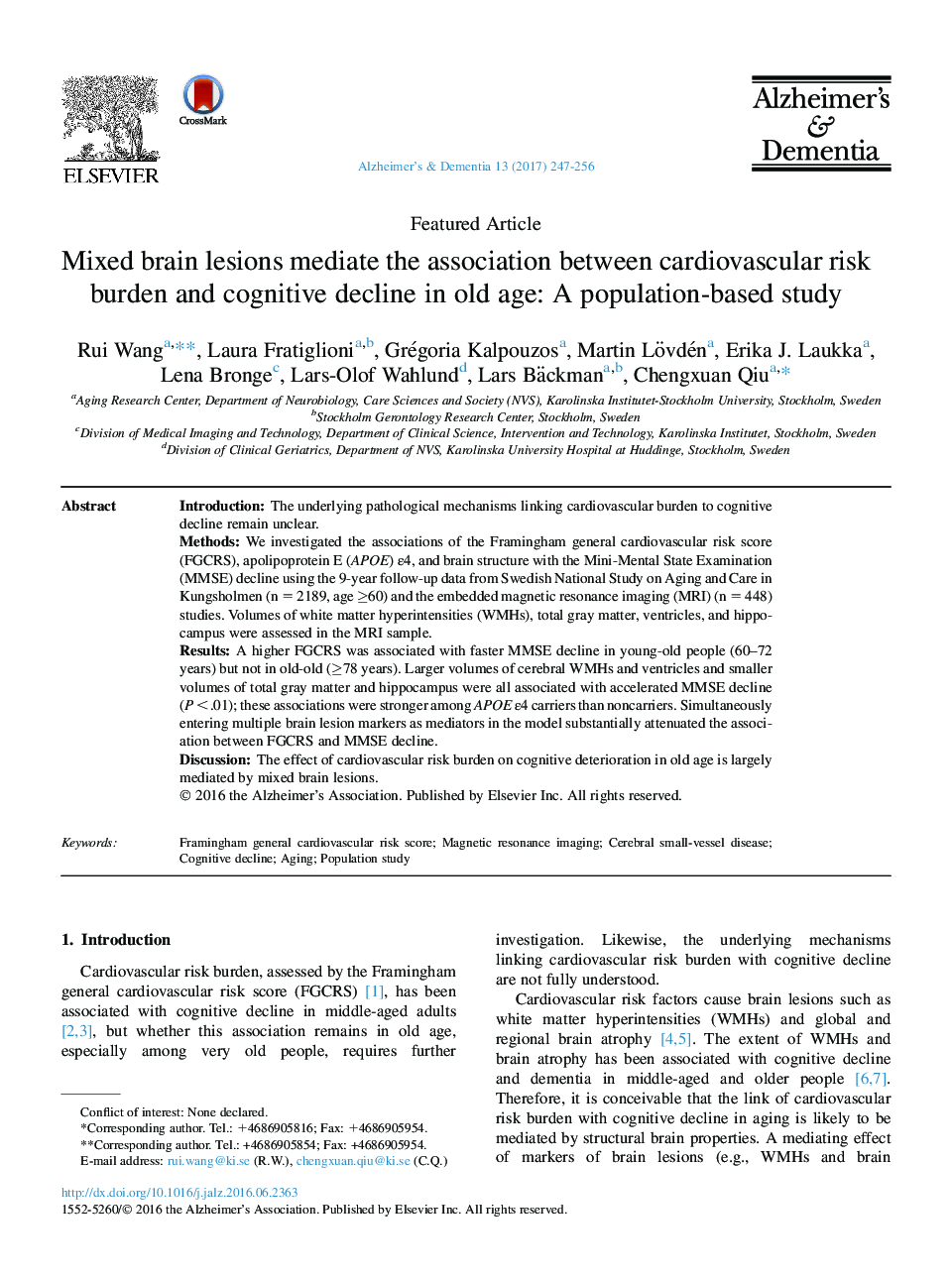| Article ID | Journal | Published Year | Pages | File Type |
|---|---|---|---|---|
| 5623757 | Alzheimer's & Dementia | 2017 | 10 Pages |
IntroductionThe underlying pathological mechanisms linking cardiovascular burden to cognitive decline remain unclear.MethodsWe investigated the associations of the Framingham general cardiovascular risk score (FGCRS), apolipoprotein E (APOE) ε4, and brain structure with the Mini-Mental State Examination (MMSE) decline using the 9-year follow-up data from Swedish National Study on Aging and Care in Kungsholmen (n = 2189, age â¥60) and the embedded magnetic resonance imaging (MRI) (n = 448) studies. Volumes of white matter hyperintensities (WMHs), total gray matter, ventricles, and hippocampus were assessed in the MRI sample.ResultsA higher FGCRS was associated with faster MMSE decline in young-old people (60-72 years) but not in old-old (â¥78 years). Larger volumes of cerebral WMHs and ventricles and smaller volumes of total gray matter and hippocampus were all associated with accelerated MMSE decline (P < .01); these associations were stronger among APOE ε4 carriers than noncarriers. Simultaneously entering multiple brain lesion markers as mediators in the model substantially attenuated the association between FGCRS and MMSE decline.DiscussionThe effect of cardiovascular risk burden on cognitive deterioration in old age is largely mediated by mixed brain lesions.
